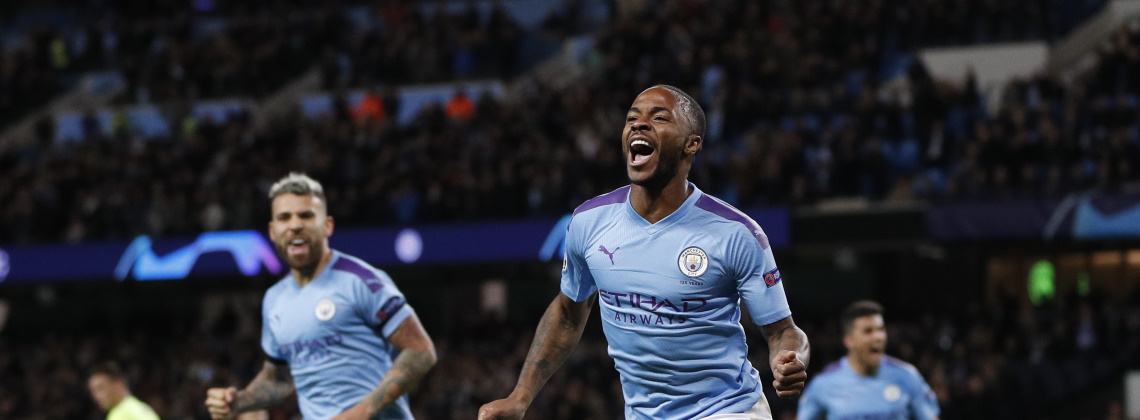
Not-so-super leagues: Why uncompetitiveness across Europe is a real problem
Greg Lea
11 February 2022
Olivier Giroud’s brace in the Milan derby on Sunday was not only cheered by the red-and-black half of Italy’s second city.
The striker’s second-half double also went down well among those football fans who prefer title races to title processions. Milan’s 2-1 victory over Inter means the destination of the Serie A trophy is still unknown, unlike the equivalent prizes in the Premier League, Ligue 1, La Liga and the Bundesliga.
The European Super League was not the answer, but it is becoming increasingly difficult to ignore the lack of competitiveness in many of the continent’s top leagues.
Manchester City are currently nine points clear at the summit of the Premier League standings, as Pep Guardiola’s side seek their fourth title in the last five seasons. Bayern Munich also have a nine-point buffer above Borussia Dortmund in the Bundesliga, with a 10th consecutive crown virtually in the bag already.
Paris Saint-Germain are even further clear in Ligue 1, with second-placed Marseille trailing the champions-elect by 13 points. The gap at the top of La Liga might only be six points, but it would be a major shock if Real Madrid failed to win the prize from here.
Teams rise and fall
Some may argue that football moves in cycles and that the current situation across the continent is not cause for concern.
Lyon won seven Ligue 1 crowns in a row in the 2000s but have not lifted the trophy since. Real Madrid might win La Liga this term, but that would be only their fourth triumph since 2008. Manchester City might be rich but their remarkable run of success in England owes in large part to the presence of Guardiola in the dugout, and he will not be there for ever.
Yet even a glance through the history books is sufficient to show that the present lack of competitiveness in major European leagues is abnormal.
Real Madrid and Barcelona have been the most successful sides in La Liga since the mid-1950s. Yet Madrid’s likely victory this year means one of Spain’s big two will win the title for the 18th time in the last 20 years, with Atletico Madrid the sole disruptors. Contrast that to the shorter period between 1996 and 2004 when five different clubs finished on top of the pile.
In Italy, Inter are seeking a second consecutive title, but just 18 months ago Juventus were celebrating their ninth scudetto in a row. Bayern have long been dominant in Germany but their previous record run of successive titles was three. Gone are the days when an Ipswich Town, Derby County or Nottingham Forest could win the top flight in England.
The football played at the highest level today is of higher quality than anything that went before. The pitches are immaculate, the players are professional, and fields such as sports science and analytics have been embraced. The concentration of talent at a handful of 'superclubs' has also helped.
Competition is key for entertainment
But sport is not theatre. Competition is vital. It is hard not to admire Manchester City’s technical and tactical mastery, but watching them ease to a 4-0 victory with 75 per cent of possession is not particularly entertaining if it happens every week.
That is not to criticise City, who should not be faulted for producing a team with fantastic players that still manages to be more than the sum of its parts. But we cannot overlook the financial inequality within Europe’s top leagues.
The latest edition of the Deloitte Football Money League shows that Bayern Munich earn almost double the revenue of Borussia Dortmund, who are in turn significantly wealthier than the likes of Eintracht Frankfurt and RB Leipzig. PSG bring in more than three times the amount of money as Lyon.
Atletico Madrid’s revenue is less than half that of Barcelona and Real Madrid. Juventus pocket over €100m more than Inter. The Premier League is more equitable, but only because the big six have zoomed past the other 14.
Witness what happens on the rare occasions where the favourite does not win the title. After Monaco beat PSG to the Ligue 1 crown in 2017, they were forced to cash in on Bernardo Silva, Benjamin Mendy and Tiemoue Bakayoko. Their most exciting prospect, Kylian Mbappe, was loaned out… to PSG.
In Germany, Bayern have routinely plucked the best players from elsewhere in the division. Robert Lewandowski, Mats Hummels and Mario Gotze joined from Borussia Dortmund. Leon Goretzka came from Schalke and Niklas Sule was brought in from Hoffenheim. Julian Nagelsmann, their current manager, was bought out of his contract at RB Leipzig.
Juventus might not be on top in Serie A right now, but they splashed out on the league’s most promising attacking prospect in January, signing Dusan Vlahovic from Fiorentina for £63m. No other club in Italy could afford such a fee. It is a matter of time before the Old Lady starts winning titles again.
The Champions League restarts next week, and the latter stages of the competition routinely produce some brilliant football. Anyone who loves the sport will be intrigued to see how PSG get on against Real Madrid in the round of 16, as two of Europe’s heavyweights go head-to-head over two legs.
Yet the season is 10 months long and there should be more than a handful of matches in spring that truly mean something in determining the destination of silverware. Giroud’s brace on Sunday might have opened up the Serie A title race, but Europe’s major leagues are in danger of becoming closed shops.
Greg Lea
11 February 2022


